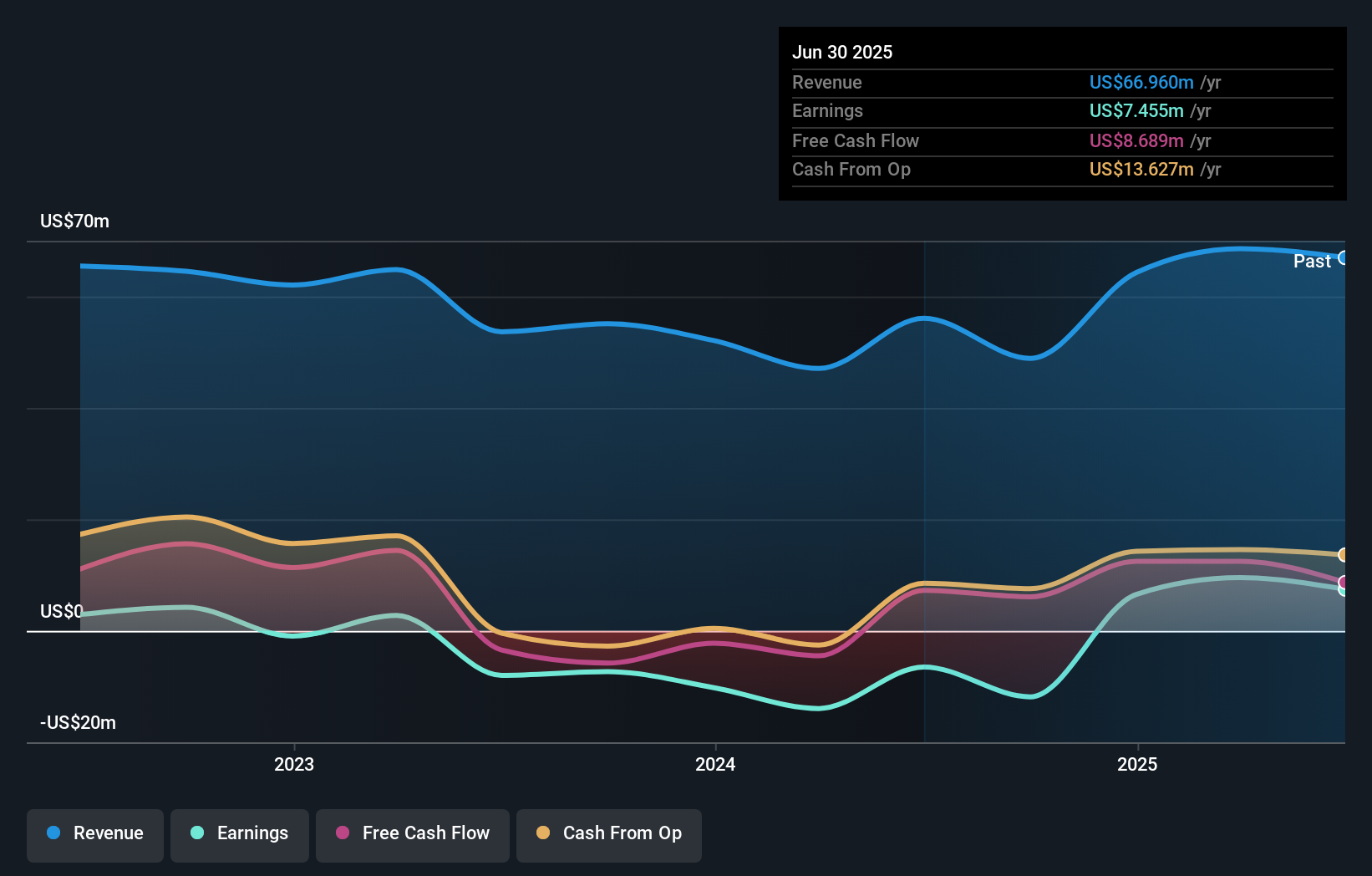- Canada
- /
- Metals and Mining
- /
- TSX:TI
Titan Mining Corporation (TSE:TI) insiders have had a fantastic week as stock increased 12%, and they haven't stopped buying
Key Insights
- Significant insider control over Titan Mining implies vested interests in company growth
- Richard Warke owns 54% of the company
- Insiders have been buying lately
If you want to know who really controls Titan Mining Corporation (TSE:TI), then you'll have to look at the makeup of its share registry. And the group that holds the biggest piece of the pie are individual insiders with 56% ownership. In other words, the group stands to gain the most (or lose the most) from their investment into the company.
A quick look at our data suggests that insiders have been buying shares in the company recently and their bets paid off last week after the stock gained 12%.
In the chart below, we zoom in on the different ownership groups of Titan Mining.
See our latest analysis for Titan Mining

What Does The Institutional Ownership Tell Us About Titan Mining?
Institutional investors commonly compare their own returns to the returns of a commonly followed index. So they generally do consider buying larger companies that are included in the relevant benchmark index.
Titan Mining already has institutions on the share registry. Indeed, they own a respectable stake in the company. This suggests some credibility amongst professional investors. But we can't rely on that fact alone since institutions make bad investments sometimes, just like everyone does. When multiple institutions own a stock, there's always a risk that they are in a 'crowded trade'. When such a trade goes wrong, multiple parties may compete to sell stock fast. This risk is higher in a company without a history of growth. You can see Titan Mining's historic earnings and revenue below, but keep in mind there's always more to the story.

We note that hedge funds don't have a meaningful investment in Titan Mining. From our data, we infer that the largest shareholder is Richard Warke (who also holds the title of Top Key Executive) with 54% of shares outstanding. Its usually considered a good sign when insiders own a significant number of shares in the company, and in this case, we're glad to see a company insider play the role of a key stakeholder. For context, the second largest shareholder holds about 5.0% of the shares outstanding, followed by an ownership of 1.7% by the third-largest shareholder.
Researching institutional ownership is a good way to gauge and filter a stock's expected performance. The same can be achieved by studying analyst sentiments. Our information suggests that there isn't any analyst coverage of the stock, so it is probably little known.
Insider Ownership Of Titan Mining
The definition of company insiders can be subjective and does vary between jurisdictions. Our data reflects individual insiders, capturing board members at the very least. The company management answer to the board and the latter should represent the interests of shareholders. Notably, sometimes top-level managers are on the board themselves.
Most consider insider ownership a positive because it can indicate the board is well aligned with other shareholders. However, on some occasions too much power is concentrated within this group.
Our most recent data indicates that insiders own the majority of Titan Mining Corporation. This means they can collectively make decisions for the company. So they have a CA$103m stake in this CA$183m business. It is good to see this level of investment. You can check here to see if those insiders have been buying recently.
General Public Ownership
With a 39% ownership, the general public, mostly comprising of individual investors, have some degree of sway over Titan Mining. While this group can't necessarily call the shots, it can certainly have a real influence on how the company is run.
Next Steps:
It's always worth thinking about the different groups who own shares in a company. But to understand Titan Mining better, we need to consider many other factors. Consider risks, for instance. Every company has them, and we've spotted 1 warning sign for Titan Mining you should know about.
If you would prefer check out another company -- one with potentially superior financials -- then do not miss this free list of interesting companies, backed by strong financial data.
NB: Figures in this article are calculated using data from the last twelve months, which refer to the 12-month period ending on the last date of the month the financial statement is dated. This may not be consistent with full year annual report figures.
Valuation is complex, but we're here to simplify it.
Discover if Titan Mining might be undervalued or overvalued with our detailed analysis, featuring fair value estimates, potential risks, dividends, insider trades, and its financial condition.
Access Free AnalysisHave feedback on this article? Concerned about the content? Get in touch with us directly. Alternatively, email editorial-team (at) simplywallst.com.
This article by Simply Wall St is general in nature. We provide commentary based on historical data and analyst forecasts only using an unbiased methodology and our articles are not intended to be financial advice. It does not constitute a recommendation to buy or sell any stock, and does not take account of your objectives, or your financial situation. We aim to bring you long-term focused analysis driven by fundamental data. Note that our analysis may not factor in the latest price-sensitive company announcements or qualitative material. Simply Wall St has no position in any stocks mentioned.
About TSX:TI
Titan Mining
A natural resource company, acquires, explores, develops, produces, and extracts mineral properties.
Good value with acceptable track record.
Market Insights
Community Narratives




